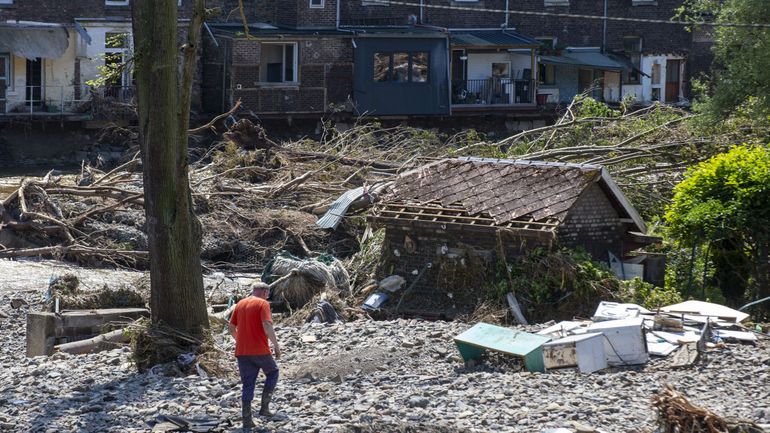Volunteers and disaster relief workers have been working around the clock in the flood stricken parts of Belgium, but the Belgian military has come under fire for what’s perceived as a lack of presence on the ground - the same accusations leveled against the Red Cross.
Belgian citizens and businesses have donated €30 million to flood victims via an emergency account with the Red Cross, at the request of the Belgian National Crisis Centre.
But media in the country report that mayors of the towns most affected by the floods are complaining that the Red Cross is “absent.”
The Belgian military has also been on the ground since 14 July, but people have accused them of absenteeism, as well.
“We have very specific tasks and are currently working at 15 locations. But people only see us when they are directly confronted with our work,” Tom Manghelinckx of the department of the Ministry of Defence told De Morgen.
“If there is a request for help from the state to the Ministry of Defence, it is my job to approach my networks of officers to arrange for the necessary support,” explained Manghelinckx.
“In this case - with the floods - we were first in an acute crisis phase. In doing so, each provincial command (military personnel assigned to a province) was given direct freedom to direct their units, which happened very quickly. In the beginning, this involved countless rescue operations: lifeboats and even the Special Forces were deployed to evacuate people.”
Once the evacuation had taken place, the water had receded, and the damage had been measured, it was possible to start reconstruction.
But that also involves a great deal of planning.
In order to steer the reconstruction in the right direction, a special commissioner's office for the Walloon region was set up.
This will be active for at least a year and will have to liaise with all local authorities via the Commission to the Crisis Centre in order to determine where help is most badly needed, along with who (and how many) will be deployed to assist.
“There are different criteria that the crisis centre takes into account,” explained Mangelinckx.
“Is the requested solution unavailable, insufficient or inadequate? And last but not least, we must not create unfair competition with private firms.”
In other words, a lot of the military’s role at this point involves coordinating and decision making.
“We are actually the last link in the chain and perform very specific tasks. As a result, we are not always present in the street scene. But since 14 July, we have already sent out more than 1,500 men, sometimes as many as 200 a day,” Mangelinckx said.
“Currently, we are actively working in 15 locations with 70 people. We have installed mobile kitchens and showers, we are working on salvage operations, including removing car wrecks with a helicopter. Plus, there are 2 companies on standby, and 150 soldiers who can leave within 24 hours.”
Mangelinckx said the people who are there now are mainly from the Battalion Engineers, trained to do infrastructure work both at home and abroad.
“They are - in a manner of speaking - the engineers of the army, with the accompanying
machines and equipment maintained and ready to go when needed,” said Mangelinckx.
“In the floods, they are worth their weight in gold at this stage. They install kitchens, showers, do excavation and salvage work where necessary and provide encampments for the rescuers who remain on site.”
After nearly two thousand men and three weeks since the first floods, there is still a lot of work to do, but it’s difficult to say how long the army will be present in the affected regions.
“We will remain available for as long as it takes,” Manghelinckx said.
The Brussels Times

